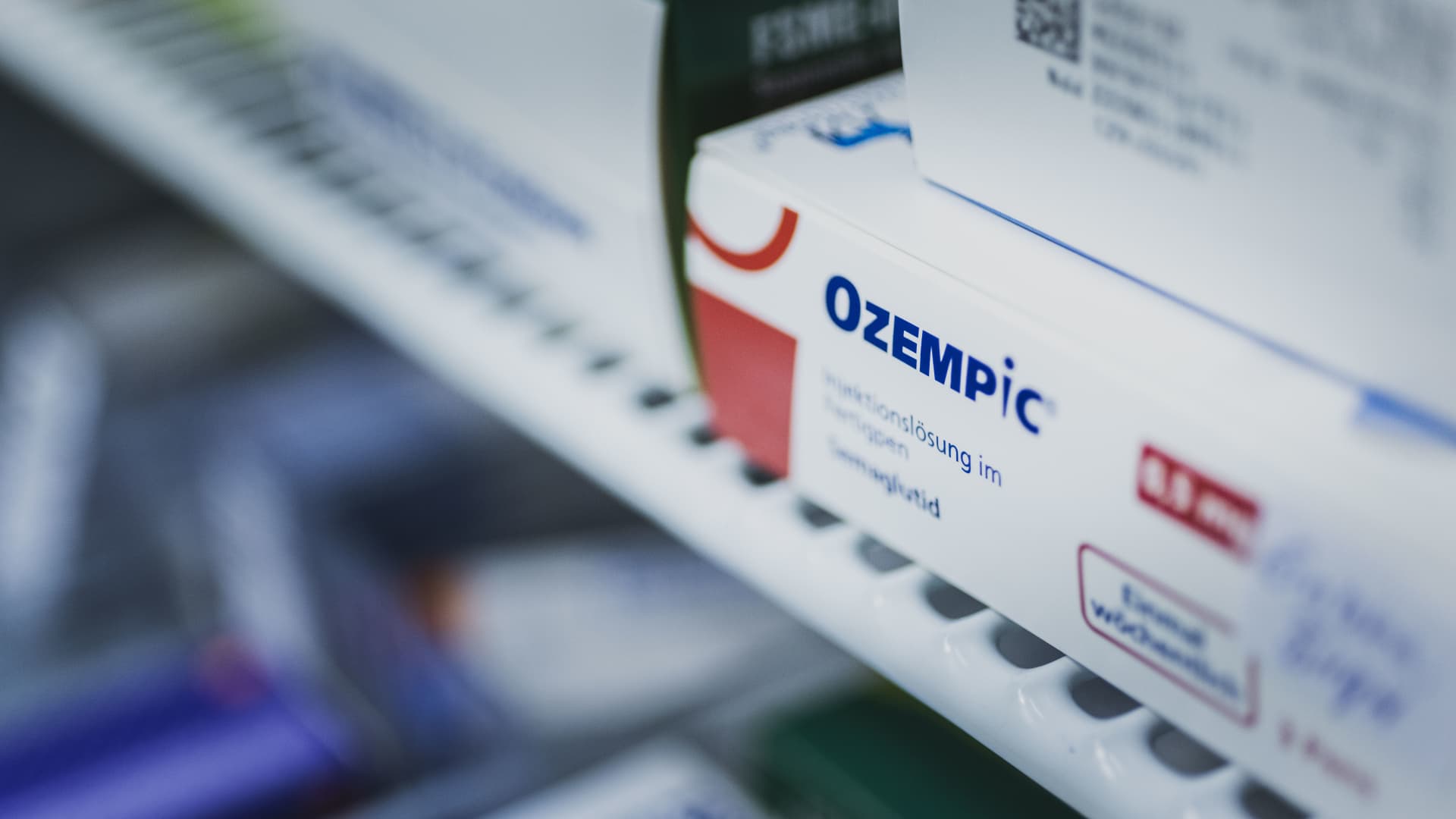An oral drug made by Pfizer causes a similar amount of weight loss as, and works quicker than, rival Novo Nordisk‘s blockbuster injection Ozempic, according to results from a phase two clinical trial released Monday.
The results were presented at a medical conference late last year. But JAMA Network only now is releasing the full peer-reviewed study.
Pfizer’s trial followed 411 adults with Type 2 diabetes who either took the company’s pill, danuglipron, twice a day or a placebo.
Patients who took a 120-milligram version of danuglipron lost around 10 pounds over the course of 16 weeks, the study found.
That compares with a phase three clinical trial on Ozempic, which found that adults who took a 1-milligram version of the injection lost around 9.9 pounds on average over 30 weeks. Patients take that shot once a week.
The results suggest danuglipron may be as effective for weight as Ozempic over a shorter period of time.
Pfizer’s drug also could offer an advantage as an oral treatment option rather than a frequent injection.
Both danuglipron and Ozempic are part of a class of drugs called glucagon-like peptide-1 antagonists.
They mimic a hormone produced in the gut called GLP-1, which signals to the brain when a person is full.
The drugs can also help people manage Type 2 diabetes because they encourage insulin release from the pancreas, lowering blood sugar levels.
New York-based Pfizer is the latest pharmaceutical company to dip into the blockbuster weight loss drug market.
Novo Nordisk’s Ozempic and Wegovy catapulted to the national spotlight in recent years for being weight loss “miracles.”
Hollywood celebrities, social media influencers, and billionaire tech mogul Elon Musk have reportedly used the popular injections to get rid of unwanted weight.
But experts say the medicines may further perpetuate a dangerous diet culture that idealizes weight loss and thinness.
Some patients who stop taking the drugs also complain about a weight rebound that is difficult to control.
More than 2 in 5 adults have obesity, according to the National Institutes of Health. About 1 in 11 adults have severe obesity.
